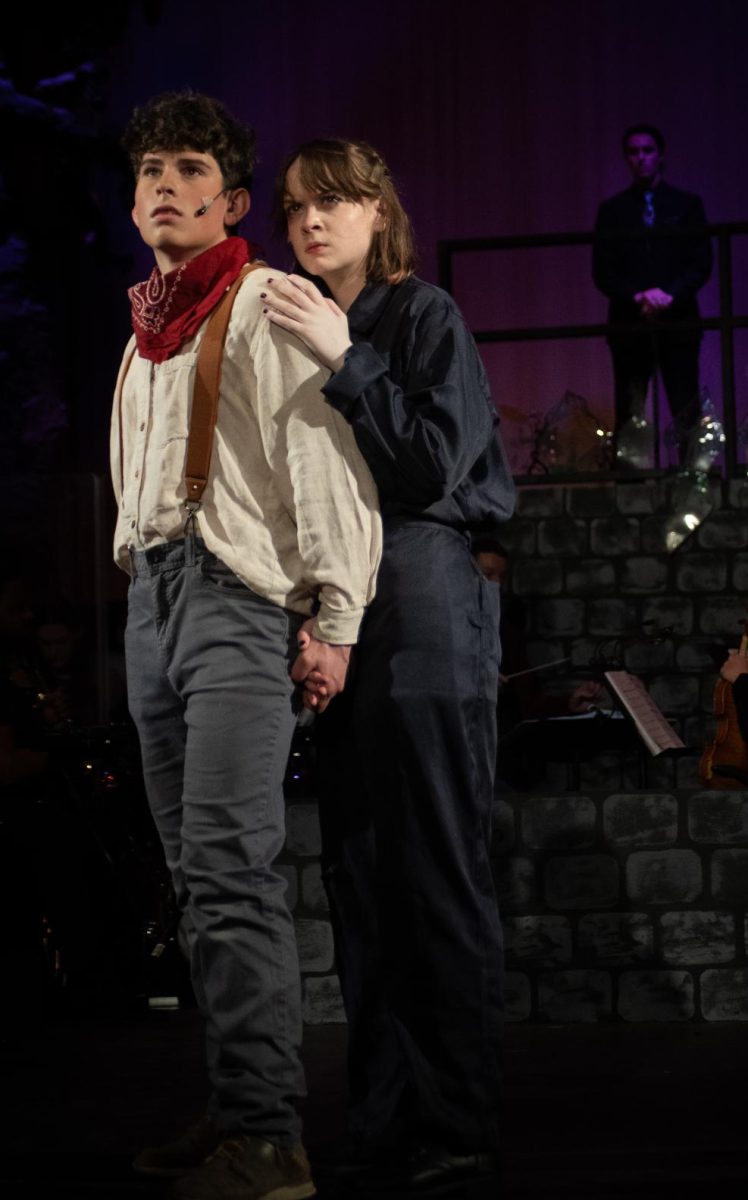Since 1985 when they initiated the A World of Difference campaign in Boston, the Anti-Defamation League has been combating prejudice and creating tools and programs for schools to address these issues around the United States.
Since its beginning, the program has gained the name, No Place For Hate, which is currently partnered with over 1,800 schools across the country fighting to make their students feel welcome and safe.
Taking this important step alongside fellow SPS schools such as West Seattle High School, a club was formed at the end of the 2022-23 school year by assistant principal David Fort and history teacher Robin Dowdy aimed to declare BHS as a No Place for Hate school and promote inclusivity and awareness.
Following repeated events that occurred over the course of last year, administration met to discuss ways in which we as a school could protect the rights of students to feel welcomed and safe.
“We recognized that we needed to do something to create a culture where we lifted people up instead of putting people down,” Fort said.
By declaring BHS as a No Place For Hate school, it now has joined over 1,800 other schools across the nation in the development of safer, more inclusive learning environments for all.
In discussion with various student members of the club, a common mention was how important working towards a better school culture is amidst the prevalence of bullying, hate speech and harassment.
Referencing the fall school climate survey, senior Mira Slotkin said that 12 percent of students reported being bullied.
“Though this doesn’t seem like a lot, when you think about it, that’s 200 students who don’t feel safe or welcomed at our school,” Slotkin said. “Two-hundred too many.”
Junior Tommy Fewel shared how he feels these topics are rarely discussed, and when they are, “it’s a one and done thing, saying bullying is bad and going right back to how it was before the next day.”
Joining the club after hearing about it through Link Crew last year, Fewel is glad people are “getting together to make actual progressive change.”
“For me, it’s all about connecting our school and spreading love,” senior Mia Mayachar said.
These students and more have worked together with Fort, Dowdy and science teacher Sophiana Banholzer over the first semester to put together bystander lessons presented on April 18 following their declaration the day prior.
Covering the meaning behind and importance of being a No Place For Hate school and explaining the “five D’s” (different methods one can use to stand up against bullying and harassment), every class went through a comprehensive presentation created by No Place For Hate to kick off the culture shift at our school.
“In this day and age, students are caring more than ever before,” Slotkin said. “But even if things seem to be on an upwards trajectory, that doesn’t mean we don’t still have systemic problems, it doesn’t mean there aren’t still changes to be made and it doesn’t mean we can’t get people to care more.”
Though further actions are not yet set in stone, No Place For Hate will not end where it began. All members have their eyes set on change and hope to bring more people together to help create it.
“It can’t be done in isolation,” Fort said. “It has to be done as a community.”
Fort hopes through this program we will be able to take steps towards bringing everyone together, even those who have previously caused harm.
“How can we bring people in who have hurt others,” Fort said. “It’s complicated because they’ve caused harm and they’ve hurt somebody. But people make mistakes, everybody makes mistakes. So, when they do, we can’t let it last forever, we have to find some way to heal and move forward.”
Fort emphasized that in order to make change “we cannot be shaming people for their mistakes, it’s about how we make them a part of the solution.”
Tying this idea to an idiom he values, Fort continued to discuss the importance of working together when looking to create a better, more welcoming culture.
“I am because we are,” Fort said, sharing the Zulu phrase of Africa, “ubuntu,” otherwise translated as “I am because you are,” and fractioned from the phrase “Umuntu ngumuntu ngabantu” meaning ‘a person is a person through other people.’
“It sets forth the idea that community exists because of us, not because of me,” Fort said. “Everybody can make a positive difference. But to make change it takes time, it takes work, and it takes community.”
























